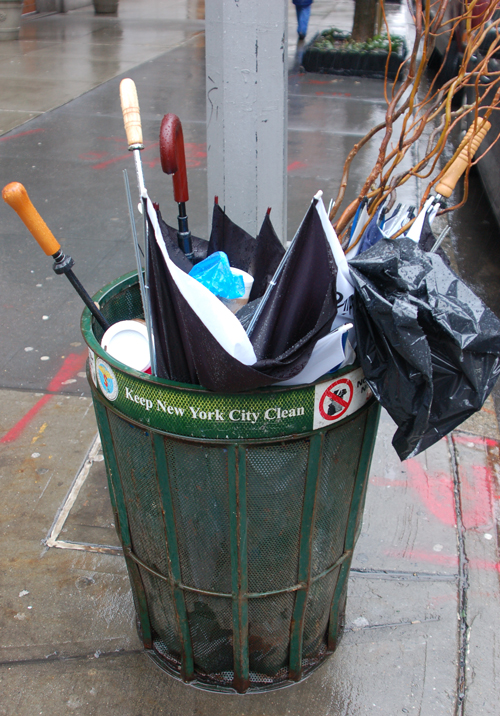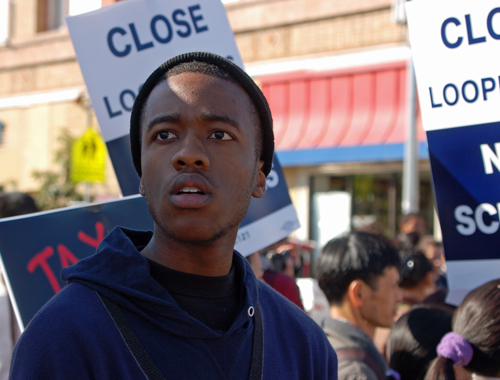 In The Future of Faith, Harvard religion scholar Harvey Cox makes the case for this prayer he quotes from a novel by Aldous Huxley:
In The Future of Faith, Harvard religion scholar Harvey Cox makes the case for this prayer he quotes from a novel by Aldous Huxley: He's a hopeful exponent of the idea that religious people of all faiths in the present time period show a readiness to move from rigid, incomprehensible creeds that must be affirmed into an experience of something transcendent beyond clerical hierarchies and institutional rigidities."Give us this day our daily faith, but deliver us from beliefs."
Well maybe. I can join him in hoping.
But along the way he reports on developments among Brazilian Pentecostals in terms that go to the heart of the concerns of this blog. I'll quote here at length from his fascinating chapter on what the rise of this religious variety means to democracy.
I was surprised by Cox's optimism about the democratic potential of this form of Christian belief in Latin America. The little bit I know about Central American religious groups has not made me nearly so hopeful. I wonder whether any "free," non-established, religious community in a developing country and economy might not play a similar role in developing socially useful skills and character traits. But he opens a window here on a world of faith that might otherwise be invisible in the North American heart of empire. Interesting book.Are Pentecostals contributing to the shift from belief to faith, or are they among those holding out for a belief-defined Christianity? ...The answer is that there are, after all, 500 million of them, and they vary widely in theologies and practices. Some Pentecostals, especially white North Americans, have been heavily influenced by fundamentalism. But in the global South, they are more influenced by an ethic of following Jesus, and vision of the kingdom of God. They have recently become increasingly active in social ministries, but the hostility they sometimes show toward other faiths limits their ability to cooperate. ...
My own experience of the impact of this new Pentecostalism has taken place mainly in Brazil where I have been visiting for three decades. During one of my first trips there twenty-five years ago, I met a young Brazilian sociologist from Sao Paulo who as studying the peasant leagues then springing up in the arid, poverty-stricken northeast. The famers were organizing these leagues so they could buy seed and equipment and market their products cooperatively. During her research this novice investigator, a serious lay Catholic, discovered that indigenous Brazilian Pentecostals, even though they constituted only about 10 percent of the population then (the percentage is higher now), had done the lion's share of the work and provided most of the leadership. Eager to uncover the link between their religious faith and their work with the leagues, she interviewed several Pentecostals and asked what the correlation was. They seemed puzzled by the question, she said, and shrugged their shoulders. This in turn puzzled her, but the more she lived among them, the more she understood the connection.
Pentecostals, she explained, are practiced list makers. they are used to compiling records of people they intend to invite to church meetings. They knock on doors, then check off who was not at home, who responded favorably, and who slammed the door. Then they return, sometimes again and again. If the door was opened, they learned to get their message across quickly and clearly. ...
The essential qualities of a religious faith can be discerned most clearly in the shape of it gives to the institutions it spawns. Pentecostals give birth to voluntary associations, which are vital to any healthy society and the lifeblood of any genuine democracy. They mediate between ordinary people and the larger structures of economy, government, education and press. They provide alternative patterns of organization and unofficial networks. They school people in the indispensable skills needed to make democracy work.
Despite the misapprehensions of many North Americans, the Pentecostals of Brazil have neither remained aloof from politics nor have they imitated the American Religious Right. Careful analyses of their political behavior indicate their voting patterns tend to the "center left." In the recent Brazilian presidential elections, for example, a large majority voted for Lula and the Workers' Party. ...
Historically, Latin America has not been a continent richly endowed with voluntary associations. In general one belonged to whatever one was born into. Be it state or nation or tribe or church, you find yourself in a collectivity. You do not join it. But to be a crente you have to join something. To borrow a famous distinction from William James, most Latin American collectivities are made up of the "once born." Virtually the only exceptions to this rule have been labor unions, sports teams, base communities, and Pentecostal or evangelical religious congregations, which are constituted by the "twice born," people who have made a conscious choice to join something. All this means that the stunning growth of Pentecostals is a critical key to the democratization of the whole region, especially since they are beginning to participate in political life in an active way, hold public office, and seek to formulate a "social theology" of their own. But the continued growth of Pentecostals and their contribution to democracy are in no way guaranteed. They are often fragile, vulnerable to pressures from without and threats from within. How much they will strengthen democracy is still an open question.
...Until recently the contribution of Pentecostals to democracy has been an indirect one. Their role calls to mind the observation of historian Alexis de Tocqueville (1805-59) in the early nineteenth century that is was American religion that provided the indispensable fertile soil for democracy. Without the myriad congregations and other voluntary associations he found in America, he wrote, there would not be the "habits of the heart" democracy requires. In the religious congregations he visited, Tocquevillle observed, people learned to discuss issues, make corporate decisions, compromise when necessary, link moral principles to current events, and, finally, to accept the results these procedural strategies produced. ...
There is a difference between becoming a Pentecostal in Latin America today and joining a religious congregation in the United States that Tocqueville visited in the early nineteenth century. In Latin America choosing to become a Pentecostal can exact a high price, evoking the scorn of one's neighbors and family and, until recently, legal persecution. For Latin Americans this initial choice requires more courage. It is risky. But it instills a "habit of choosing" and hence a feeling of not being trapped forever in one's station. ... To borrow a phrase from North American black culture, they can say, "I am ... somebody." ...
One clear and present inner threat to Pentecostals' capacity to nurture democracy is a tendency to curtail it in their own congregations. Their emphasis on charismatic gifts came make their leadership arbitrary: "If God has put me in this position of power, why should you question my decisions?" Further, dynastic leadership is not unusual. ...
But Pentecostals also face threats from without. Ruling regimes in authoritarian countries do not worry so much about the theology of evangelical or Pentecostal congregations. But they do worry about "list makers" who know how to get people together, regionally, nationally, and even internationally. ...
Perhaps the clearest threat to the future of Pentecostals in Latin America is a combination of within and without ... the consumerist style is not just the wolf at the door; it is also a rather large camel's nose rather far inside the Pentecostal tent. It finds expression in the "gospel of prosperity," sometimes called the "name it and claim it" theology, derived in large measure from North American sources....
What comes next? ...No one knows, of course, But two core crente beliefs will play a decisive role: conversion ("you must be born again") and holiness ("be not conformed to this world.") In political and cultural terms conversion means that people can change and that therefore fatalism -- either personal or societal -- is not acceptable. Holiness means that you need not buy into the latest mind-numbing fads of the commodity lifestyle. You can be "in but not of this world."









































